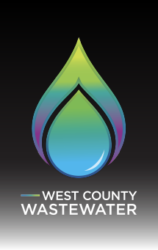West County Wastewater COVID-19 FAQs
Will my wastewater service be interrupted?
Your wastewater service will not be interrupted amid the COVID-19 pandemic. West County Wastewater will continue providing service with minimal staffing, including plant operations, responding to emergencies and inspections for emergency work. West County Wastewater is also offering online access to certain services. Learn more here.
Our administrative offices are temporarily closed. Phone calls to West County Wastewater will be monitored, but response may not be immediate except for emergencies. For sewer emergencies, call (510) 222-6799.
Can I get COVID-19 from wastewater?
The risk of COVID-19 spreading through sewage is low, according to the World Health Organization (WHO) and the Centers for Disease Control and Prevention. While initial investigations suggest that traces of the virus may be present in untreated wastewater, no COVID-19 cases have been reported so far that involve exposure to contaminated stool. There is no evidence to date on the survival of COVID-19 in water or sewage. Standard treatment is expected to remove COVID-19 from water and wastewater.
Does discharged wastewater pose a threat to spreading COVID-19?
Coronavirus (COVID-19) is particularly susceptible to disinfection, according to WHO and the U.S. Environmental Protection Agency. Standard treatment and disinfectant processes at wastewater treatment plants are expected to be effective at removing viruses like COVID-19 from wastewater before it is discharged.
How does West County Wastewater make sure COVID-19 is not present in discharged water?
Our collection and treatment process meets all state and federal regulations to ensure viruses, like COVID-19, bacteria and other contaminants do not survive in the sewage.
How can I do my part to help ensure reliable wastewater service?
You can help by keeping drains and pipes clear to prevent sewage overflows. Grease, certain food waste and cleaning supplies, such as wipes and paper towels, clog pipes and pumps. Even items that are labeled as flushable can lead to blockages, which can cause overflows into homes and streets. These items should be thrown in the trash. When in doubt, throw it out! Learn more here.
